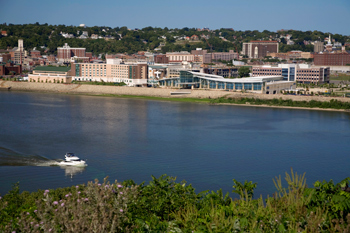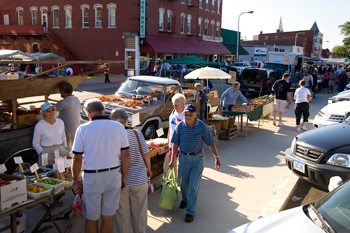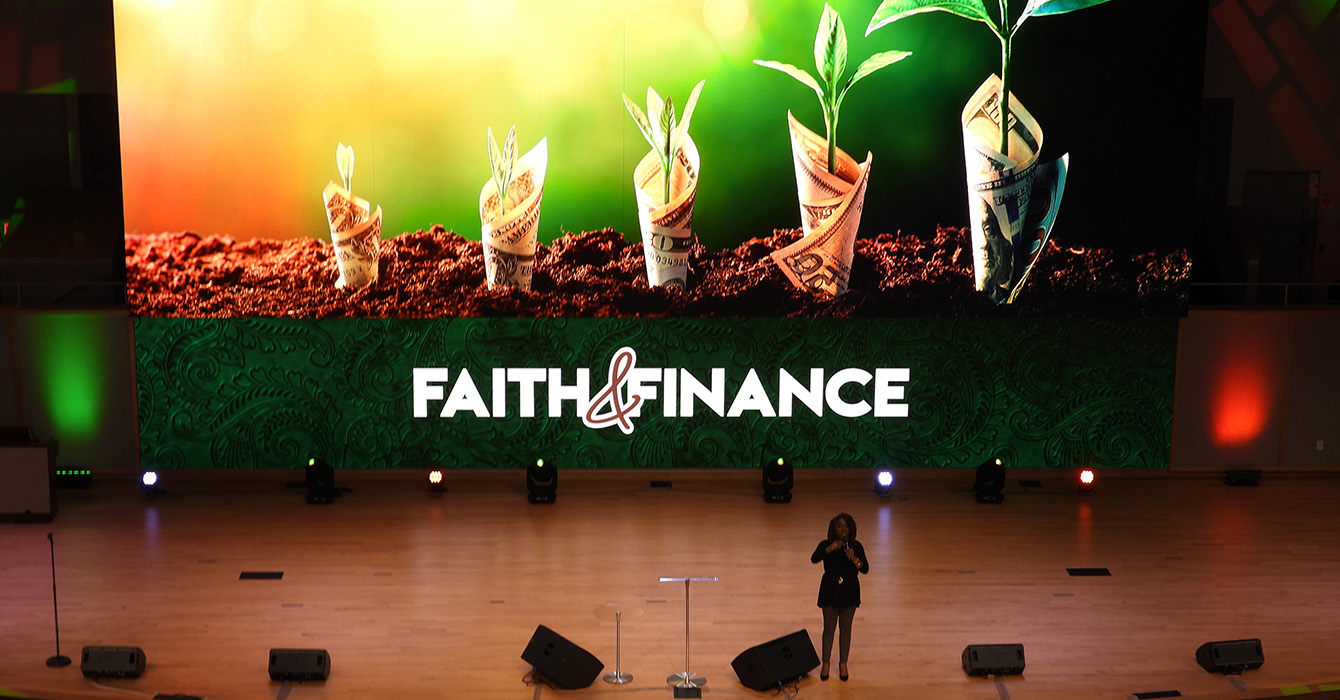Dubuque Mayor Roy Buol had come on the scene in 1995 as a councilman. In his run for mayor 10 years later, he had begun to consider how to preserve the improvements Dubuque had made since the city’s nadir in the 1970s and 1980s. By the time he took office as mayor in 2005, Buol had determined that sustainability would be the foundation of his work.
Buol joined the U.S. Conference of Mayors and its climate protection group. He traveled to Robert Redford’s Sundance Preserve for a three-day summit about climate change. Upon his return, Buol reported his findings and conclusions to the City Council.
“I truly believed that cities that got out in front on sustainability would have an economic advantage over cities that came late,” he said. The council agreed and made sustainability its No. 1 priority.
With that crucial support, the city moved forward on several fronts:
- Applied for a grant to have a sustainable design team from the American Institute of Architects conduct a citywide assessment of Dubuque. The assessment showed where the town, businesses, schools and neighborhoods could improve.
- Created a 40-member task force to gather citizen input from all sectors. Eighteen months later -- after hundreds of surveys, phone calls and gatherings of disparate groups -- the task force recommended a three-pronged sustainability vision statement, embracing environmental integrity, economic prosperity and cultural vibrancy. To achieve those goals, the task force identified 11 principles of community living, from smart energy use and resource management to healthy local foods and citizen education. The City Council approved the recommendation with a 7-0 vote.
- Encouraged citywide citizen adoption with a Mayor’s Pledge card, distributed to schools, businesses and other organizations, suggesting small, simple actions (such as using recyclable bags rather than plastic ones) that, when done collectively, could make a big difference.
- Began an internal campaign to adopt and promote green and sustainable practices, from using energy-saving light bulbs and motion-sensing lights in city buildings to using biodiesel fuel in city garbage trucks and choosing hybrid cars, when possible, for city fleets.
Dozens of groups -- including schools, churches and businesses -- also started their own programs.
What’s the evidence of Dubuque’s success? “Job numbers have just been phenomenal,” Buol said. “We’ve created, in the last year, one in five jobs in Iowa. We have great quality of life. We are an attractive place for business to locate.”












